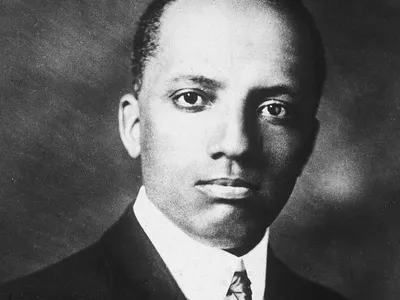It’s that time of the year ‘Black History Month’ and we thought it be a good time to reflect on black figures that have contributed to the black community and influenced the world.
Table of Contents
Bob Marley
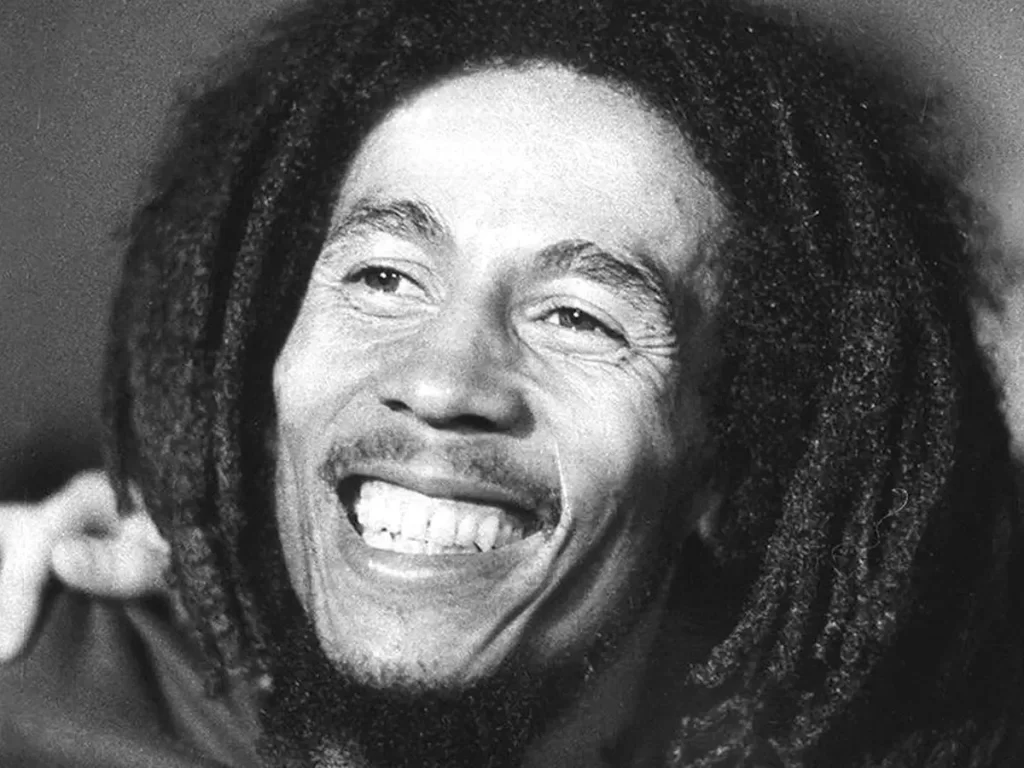
Bob Marley, born Robert Nesta Marley on February 6, 1945, in Nine Mile, Jamaica, is an enduring cultural icon and one of the most influential musicians in the history of reggae music and popular music in general.
Raised in poverty in the rural Jamaican countryside, Marley’s early life was marked by struggles and challenges. Despite the hardships, he developed a deep love for music and began performing with friends.
In the late 1960s, he formed the band The Wailers, which would go on to create some of the most iconic reggae music of all time.
Marley’s music was not just about entertainment; it carried powerful messages of love, unity, and social justice. Songs like “One Love,” “No Woman, No Cry,” and “Redemption Song” became anthems of hope and revolution.
Marley was an advocate for peace and an influential figure in the Rastafarian movement, which emphasised spiritual awakening and a connection to African heritage. His commitment to these ideals was demonstrated in his music and his life.
Tragically, Bob Marley’s life was cut short when he passed away on May 11, 1981, at the age of 36 due to complications from cancer. However, his legacy endures through his timeless music, which continues to inspire and unite people across the world.
His impact on music, culture, and the promotion of social justice remains profound, making him a legendary figure whose influence transcends generations.
Stevie Wonder

Stevie Wonder, born Stevland Hardaway Judkins on May 13, 1950, in Saginaw, Michigan, is a musical genius whose life story is a testament to the power of talent and determination. At an early age, Wonder displayed extraordinary musical abilities, and he began singing in his local church choir and playing various instruments, including the harmonica, drums, and piano.
By the age of 11, he had signed a record deal and released his debut album. His unique blend of soul, R&B, and pop quickly gained attention, and he became a child prodigy in the music industry.
As Stevie Wonder grew into adulthood, his career soared to even greater heights. In the 1970s, he released a series of groundbreaking albums, including “Talking Book,” “Innervisions,” and “Songs in the Key of Life.” These albums featured hits like “Superstition,” “Higher Ground,” and “Sir Duke” and solidified his status as one of the most influential and innovative musicians of his era.
What makes Wonder’s journey even more remarkable is that he achieved this remarkable success despite being blind from birth, using his exceptional musical talent to break down barriers and redefine the boundaries of what a visually impaired artist could achieve. His advocacy for social and political causes, including civil rights and disability rights, also underscored his commitment to using his platform for positive change. Stevie Wonder’s remarkable life and music continue to inspire and uplift people worldwide.
Nina Simone
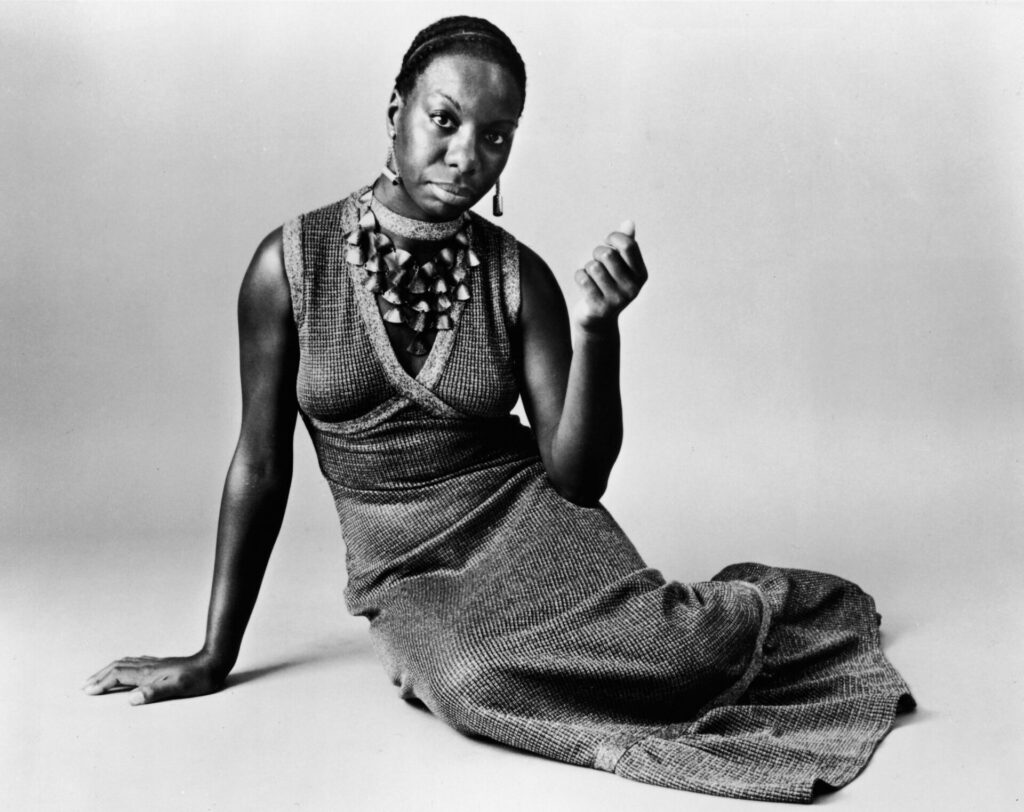
Nina Simone, born Eunice Kathleen Waymon on February 21, 1933, in Tryon, North Carolina, was a gifted pianist, singer, and civil rights activist whose remarkable life journey left an indelible mark on both the world of music and the fight for racial equality.
She began her musical journey at a young age, displaying prodigious talent as a pianist. Simone’s classical piano training led her to dream of becoming the first Black female classical pianist, but her aspirations took a different path due to financial constraints.
She began performing in clubs under the name Nina Simone to support her family and quickly garnered attention for her distinctive voice and emotive style.
Nina Simone’s music was characterised by its genre-defying nature, blending elements of jazz, blues, gospel, and classical music. She became known for her powerful and soul-stirring performances, with iconic songs like “I Put a Spell on You” and “Feeling Good” showcasing her vocal prowess and emotional depth.
Beyond her musical talents, Simone became deeply involved in the civil rights movement during the 1960s. Her song “Mississippi Goddam” became an anthem for the movement, addressing the racial violence and injustices of the era.
She used her platform to advocate for racial equality and justice, even performing at the legendary Selma to Montgomery marches in 1965.
Nina Simone’s life and music continue to inspire artists and activists, leaving a lasting legacy of both artistic excellence and social activism. Unfortunately, she suffered from breast cancer for several years before she died in her sleep at her home in Carry-le-Rouet (Bouches-du-Rhône), on April 21, 2003.
Lord Kitchener
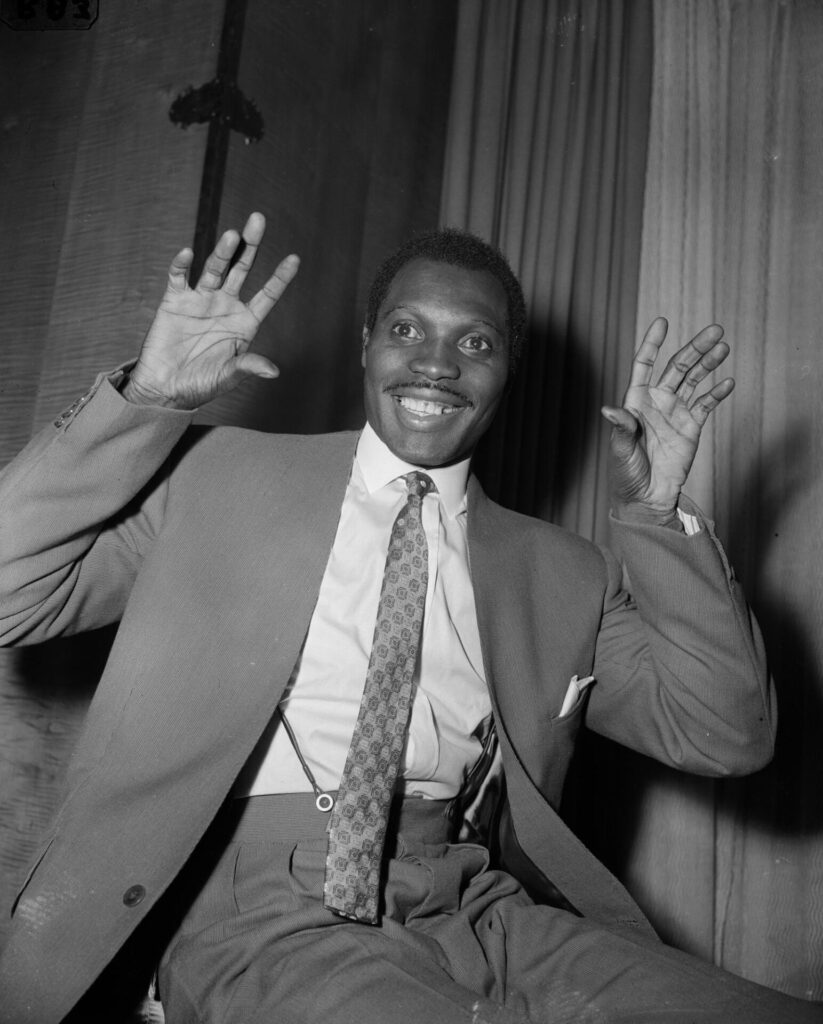
Calypsonian Lord Kitchener, whose real name was Aldwyn Roberts, was a Trinidadian calypso legend born on April 18, 1922, in Arima, Trinidad and Tobago. He is often referred to as the “Grandmaster of Calypso” and is renowned for his prolific career in music, during which he wrote and performed numerous calypsos that not only entertained but also addressed important social and political issues.
Kitchener’s journey in the world of calypso began at a young age, and he quickly gained recognition for his witty lyrics and charismatic stage presence. His music often featured clever wordplay, humour, and commentary on various aspects of Trinidadian and Caribbean life.
He was also present on the HMT Empire Windrush which docked at the Port of Tilbury in Essex, England on June 22, 1948 carrying the first large group of Caribbean immigrants to the United Kingdom.
Lord Kitchener’s influence on the calypso genre and Caribbean culture as a whole is immeasurable. He was a prominent figure during the early years of the steelpan movement and played a key role in popularising the steel pan, a quintessential instrument in Caribbean music. His songs, such as “Dr. Kitch” and “Sugar Bum Bum,” became classics and are still celebrated today during Trinidad and Tobago’s annual Carnival celebrations.
Throughout his career, Kitchener used his music to tackle issues like colonialism, racial discrimination, and the immigrant experience, earning him the respect and admiration of fans worldwide. His contributions to calypso music and his ability to blend humour with social commentary have left an enduring legacy in Caribbean music and beyond.
Lord Kitchener passed away on February 11, 2000, but his music continues to inspire generations of musicians and remains an integral part of the Caribbean musical tradition.
Jimi Hendrix
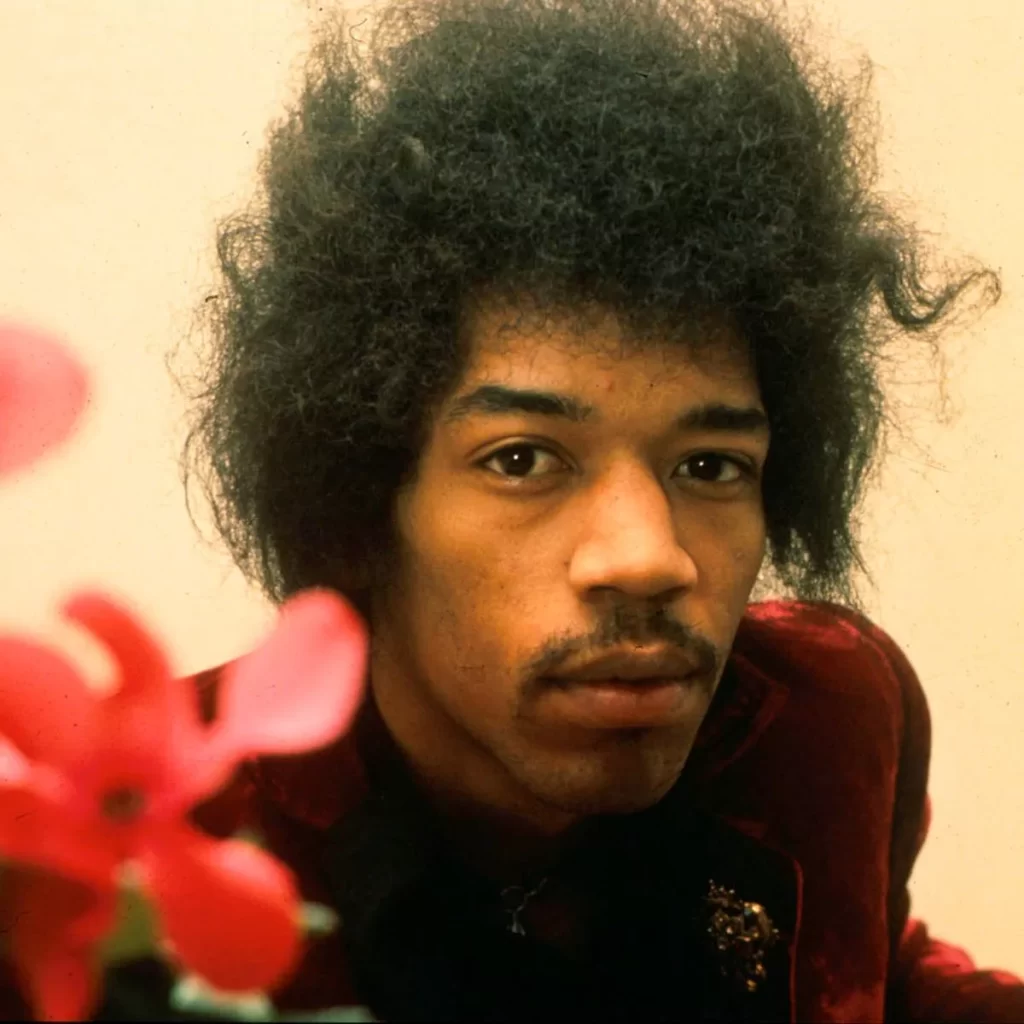
Jimi Hendrix, born Johnny Allen Hendrix on November 27, 1942, in Seattle, Washington, is widely regarded as one of the most influential and innovative guitarists in the history of rock music. He rose to fame during the late 1960s, and his brief but meteoric career left an indelible mark on the music world.
Hendrix’s early life was marked by a passion for music, and he learned to play the guitar at a young age. He joined various bands in his teens and honed his skills as a guitarist, drawing inspiration from blues legends like Muddy Waters and B.B. King.
In the mid-1960s, Jimi Hendrix moved to London, where he formed the Jimi Hendrix Experience, a power trio that would go on to redefine the possibilities of electric guitar. His innovative and revolutionary guitar techniques, including feedback, distortion, and use of the wah-wah pedal, set him apart as a groundbreaking artist.
Hendrix’s debut album, “Are You Experienced,” released in 1967, catapulted him to international stardom. Hits like “Purple Haze” and “Hey Joe” showcased his virtuosity and creativity. Tragically, Hendrix’s life was cut short when he died at the age of 27 in September 1970. Despite his brief career, his influence on rock and roll, as well as his legacy as a guitar icon, continue to resonate with musicians and fans around the world.
Michael Jackson

Michael Jackson, born on August 29, 1958, in Gary, Indiana, was a musical prodigy who became one of the most iconic and influential entertainers in the history of popular music. He began his career as a member of the Jackson 5, a Motown group formed with his siblings.
Michael’s exceptional singing and dancing abilities which were developed from the age of 3 quickly made him the standout performer, and the group achieved tremendous success with hits like “I Want You Back” and “ABC.” However, it was his solo career that catapulted him to global superstardom. His 1979 album “Off the Wall” marked the start of his solo journey, and he went on to release a string of groundbreaking albums, including “Thriller,” which remains the best-selling album of all time.
Michael Jackson’s impact on the music industry extended beyond his record-breaking sales. He was known for his innovative music videos, such as “Thriller” and “Billie Jean,” which set new standards for the visual presentation of music.
His iconic moonwalk dance move and electrifying stage presence made him a legendary performer. Jackson’s philanthropic efforts were also noteworthy; he supported various charitable causes and used his fame to raise awareness about issues like HIV/AIDS.
Despite his extraordinary talent and achievements, his life was marked by intense media scrutiny and personal challenges. He passed away on June 25, 2009, leaving behind a lasting legacy as the “King of Pop” and a global pop culture icon.
Tina Turner

Tina Turner, born Anna Mae Bullock on November 26, 1939, in Nutbush, Tennessee, is an iconic American-born Swiss singer, songwriter, and actress who rose to fame as one of the most dynamic and enduring figures in the history of rock and roll.
Her early life was marked by adversity and hardship, growing up in a tumultuous household. However, her journey to stardom began when she met Ike Turner in the late 1950s, and the two formed the Ike & Tina Turner Revue. Tina’s electrifying stage presence and powerful voice quickly made her the focal point of the group, and together they churned out hits like “Proud Mary” and “River Deep – Mountain High.”
Tina Turner’s remarkable resilience and talent became evident when she broke free from her abusive marriage to Ike Turner and embarked on a solo career in the 1970s.
She initially faced challenges in her solo endeavours but made an astounding comeback in the mid-’80s with the release of her album “Private Dancer,” which featured chart-toppers like “What’s Love Got to Do with It” and “We Don’t Need Another Hero (Thunderdome).” Her raspy, soulful voice, coupled with her fierce stage presence and signature dance moves, solidified her status as the “Queen of Rock ‘n’ Roll.”
Tina’s story is not just one of musical success but also one of personal triumph, as she overcame significant obstacles to become an enduring icon in the world of music and entertainment. After a long illness, Tina Turner passed away on May 23rd 2023.
Sidney Poitier
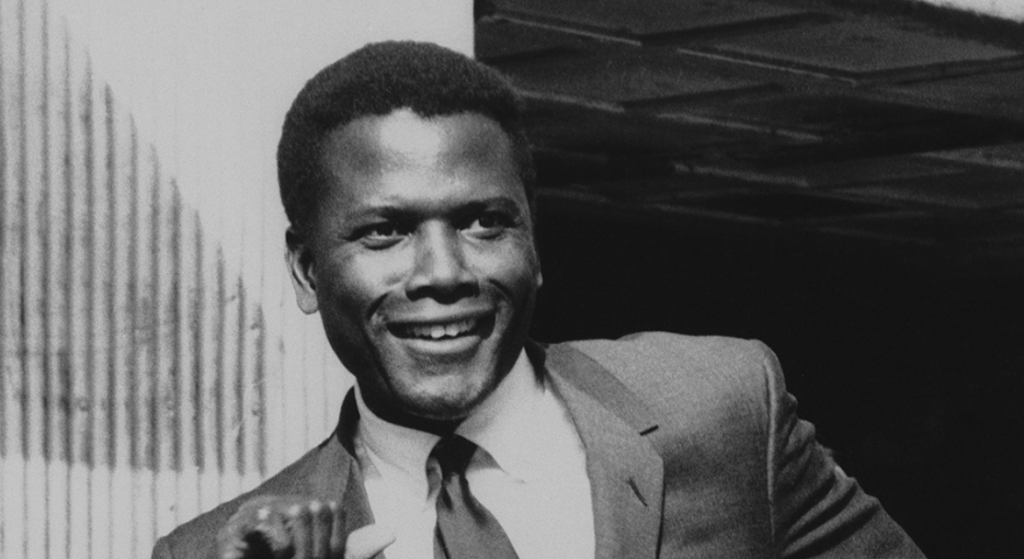
Sidney Poitier, born on February 20, 1927, in Miami, Florida, is an iconic American actor and filmmaker who broke racial barriers in Hollywood during the mid-20th century. Raised in the Bahamas, he moved to New York City as a teenager, where he initially struggled against poverty and discrimination.
Poitier’s tenacity and passion for acting eventually led him to the American Negro Theater, where he honed his craft. His early acting roles were limited due to racial prejudices in the industry, but he persevered and soon gained recognition for his talent.
Sidney Poitier’s career reached a historic milestone in 1963 when he won the Academy Award for Best Actor for his role in “Lilies of the Field.” This victory marked him as the first African American to receive an Oscar in the lead acting category. Poitier’s success not only opened doors for Black actors but also challenged stereotypes and prejudices in American cinema.
His roles in films like “Guess Who’s Coming to Dinner,” where he portrayed a Black man in a relationship with a white woman, and “To Sir, with Love,” where he played an inspiring teacher, tackled pressing issues of race and social change.
Beyond his acting career, Poitier was a prominent advocate for civil rights and racial equality, using his platform to address pressing societal issues. Sidney Poitier’s legacy as an actor, filmmaker, and civil rights advocate continues to inspire and resonate with people around the world.
Denzel Washington

Denzel Washington, born on December 28, 1954, in Mount Vernon, New York, is a highly acclaimed American actor, director, and producer known for his extraordinary talent and versatility in Hollywood. He began his acting career in the 1970s and made his mark in the 1980s with notable performances on stage and screen.
Washington’s breakthrough came with his portrayal of Private Trip in the 1989 film “Glory,” for which he won the Academy Award for Best Supporting Actor. This recognition catapulted him into the ranks of Hollywood’s elite actors.
Throughout his career, Denzel Washington has delivered outstanding performances across a wide range of genres, from drama and action to suspense and historical biopics. He has received numerous accolades, including multiple Academy Awards and Golden Globe Awards. Some of his most memorable roles include characters in films such as “Training Day,” “Malcolm X,” “Philadelphia,” “Flight,” and “Fences,” which he also directed.
Washington is known for his commitment to his craft and his ability to deeply immerse himself in the characters he portrays. In addition to his impressive acting career, he has also been involved in various philanthropic efforts, making him a respected figure not only in the entertainment industry but also in the broader community. Denzel Washington’s enduring impact on cinema and his commitment to his craft continue to inspire aspiring actors and filmmakers worldwide.
Idris Elba

Idris Elba, born on September 6, 1972, in London, England, is a versatile and accomplished actor known for his impressive range and charisma on screen.
He began his acting career in British television in the 1990s and gained recognition for his role as drug kingpin Stringer Bell in the critically acclaimed series “The Wire.” This role marked the start of his rise to international fame and established him as a formidable talent in both television and film.
Idris Elba’s career has been marked by a wide array of roles, from playing the iconic detective John Luther in the BBC series “Luther” to his portrayal of Nelson Mandela in the biographical film “Mandela: Long Walk to Freedom.” He has seamlessly transitioned between genres, taking on action-packed roles in films like “Pacific Rim” and “Thor,” as well as dramatic performances in movies such as “Beasts of No Nation” and “The Mountain Between Us.”
Beyond his acting career, Elba is also a DJ and musician, known by the stage name “DJ Big Driis.” He has ventured into directing and producing, further expanding his creative influence in the entertainment industry. Idris Elba’s talent, work ethic, and contributions to the world of film and television have made him a respected figure in the entertainment industry and a source of inspiration for aspiring actors.
Eartha Kitt

Eartha Kitt, born on January 17, 1927, in North, South Carolina, was a multifaceted American actress, singer, and dancer who left an indelible mark on the entertainment industry. Her life was marked by adversity as she was born into poverty and faced racial discrimination from a young age.
Kitt’s journey to stardom began in the 1940s when she joined the Katherine Dunham Company as a dancer and toured Europe. Her unique talent and captivating presence caught the eye of Parisian audiences, leading to her breakthrough in the cabaret scene in France.
In the 1950s, Eartha Kitt returned to the United States and made her mark in Hollywood, starring in films like “Anna Lucasta” and “St. Louis Blues.” She became widely known for her sultry, distinctive voice and her hit songs, including “C’est Si Bon” and the holiday classic “Santa Baby.”
Kitt’s career spanned various mediums, including theatre, film, television, and music, making her a true triple threat in the entertainment world. She was also a trailblazer, as one of the first Black women to achieve success in mainstream entertainment during a time of racial segregation and prejudice.
Her outspoken advocacy for civil rights and social justice, even at the height of her career, made her an icon not only in the realm of entertainment but also in the fight for equality and human rights. Eartha Kitt’s legacy as a performer and activist continues to inspire generations of artists and activists alike.
Samuel L Jackson

Samuel L. Jackson, born on December 21, 1948, in Washington, D.C., is one of Hollywood’s most prolific and versatile actors known for his commanding screen presence and distinctive voice. His journey to stardom was marked by persistence and dedication.
After graduating from Morehouse College with a degree in drama, Jackson honed his acting skills on stage and in small film roles. It was his collaboration with director Spike Lee in the late 1980s and early 1990s that helped catapult him to prominence, with memorable roles in films like “Do the Right Thing” and “Jungle Fever.”
Jackson’s breakthrough role came in 1994 when he portrayed hitman Jules Winnfield in Quentin Tarantino’s “Pulp Fiction.” His compelling performance earned him an Academy Award nomination and solidified his status as one of Hollywood’s leading actors.
Samuel L. Jackson’s career is defined by his incredible versatility, with roles in a wide range of films, from action-packed blockbusters like “Jurassic Park” and “The Avengers” to more dramatic fare like “A Time to Kill” and “Jackie Brown.” He’s known for his collaboration with Tarantino in multiple films and for his portrayal of the iconic Nick Fury in the Marvel Cinematic Universe.
Jackson’s prolific career and his ability to bring depth and charisma to his characters have made him a beloved and respected figure in the world of cinema.
James Earl Jones
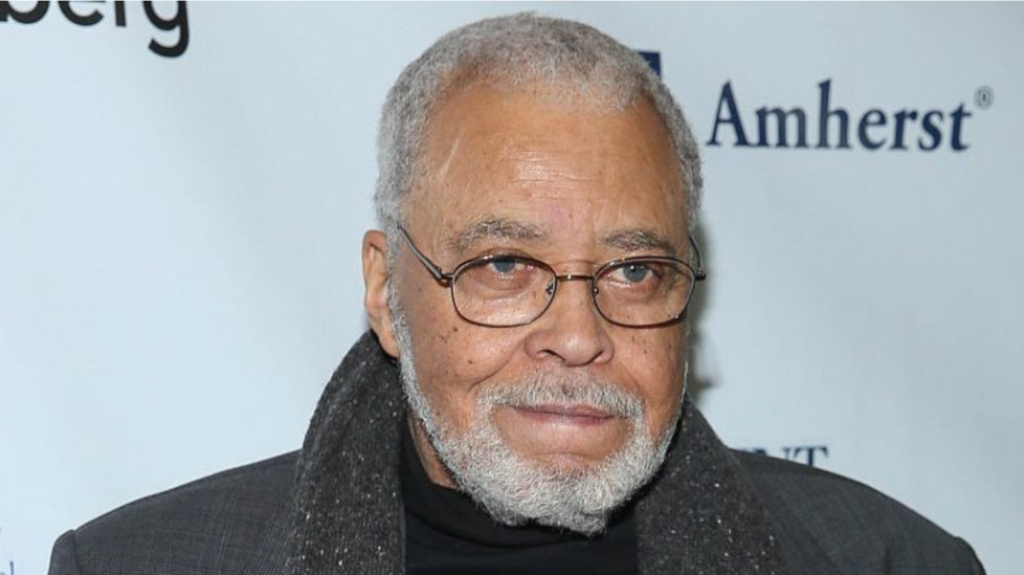
James Earl Jones, born on January 17, 1931, in Arkabutla, Mississippi, is a legendary American actor whose deep and resonant voice has made him one of the most recognizable and revered figures in the world of film, television, and theatre.
Growing up in a rural area, Jones developed a severe stutter as a child, which led to his early silence and reticence. However, a high school teacher encouraged him to participate in a school play, which marked the beginning of his journey into acting. Jones attended the University of Michigan, where he studied drama and continued to refine his craft.
James Earl Jones’s illustrious career spans over six decades, during which he has received numerous awards and accolades. He gained critical acclaim for his stage performances, most notably as the lead in August Wilson’s “Fences,” for which he won a Tony Award. On the big screen, he is renowned for his iconic voice work, providing the voice for Darth Vader in the “Star Wars” franchise.
His powerful presence and unparalleled vocal talents have also made him a sought-after narrator for documentaries and voice-over work. Jones’s contributions to the arts extend beyond acting; he has been an advocate for civil rights and social justice, and his life story serves as an inspiration for overcoming adversity to achieve greatness in the world of entertainment.
Pam Grier

Pam Grier, born on May 26, 1949, in Winston-Salem, North Carolina, is a trailblazing American actress who became an icon of 1970s Blaxploitation cinema and went on to have a diverse and influential career in film and television.
Raised in a military family, Grier moved frequently during her childhood, eventually settling in Denver, Colorado. She began her career in the entertainment industry as a receptionist at American International Pictures, where she was discovered and encouraged to pursue acting.
Pam Grier’s breakthrough came in the early 1970s with her starring roles in Blaxploitation films like “Coffy” and “Foxy Brown.” These films were notable for their strong, empowered Black female lead characters, and Grier quickly became a symbol of female empowerment and Black representation in cinema. Her characters were fierce, independent, and unapologetic, challenging traditional gender and racial stereotypes. Grier’s work in these films made her a cultural icon and an inspiration to many.
She continued to work in various film genres throughout her career, including action, drama, and comedy, and also appeared in television shows like “The L Word” and “Jackie Brown,” directed by Quentin Tarantino. Pam Grier’s contributions to the entertainment industry and her impact on the portrayal of Black women in film have left a lasting legacy in Hollywood.
Pele

Pele, whose full name is Edson Arantes do Nascimento, is widely regarded as one of the greatest football (soccer) players in history. Born in Brazil in 1940, Pele’s exceptional skills and charisma on the field made him a global icon. He burst onto the international scene at the age of 17 during the 1958 FIFA World Cup, where he helped Brazil secure its first World Cup victory. Pele’s remarkable ability to score goals, his agility, and his remarkable dribbling made him a sensation.
Pele’s career was marked by numerous records and achievements. He is the only player to have won three FIFA World Cups, with victories in 1958, 1962, and 1970. Over his career, he scored an incredible 1,283 goals in official matches, a record that still stands. Pele spent the majority of his career with Santos FC in Brazil before joining the New York Cosmos in the North American Soccer League, where he helped popularise soccer in the United States.
Beyond his achievements on the field, Pele’s impact transcended the sport. He became a global ambassador for soccer and an advocate for social causes. His sportsmanship and personality made him a beloved figure around the world. Even long after his retirement, Pele remains an enduring symbol of excellence in soccer and is cherished by fans worldwide.
Arthur Wharton
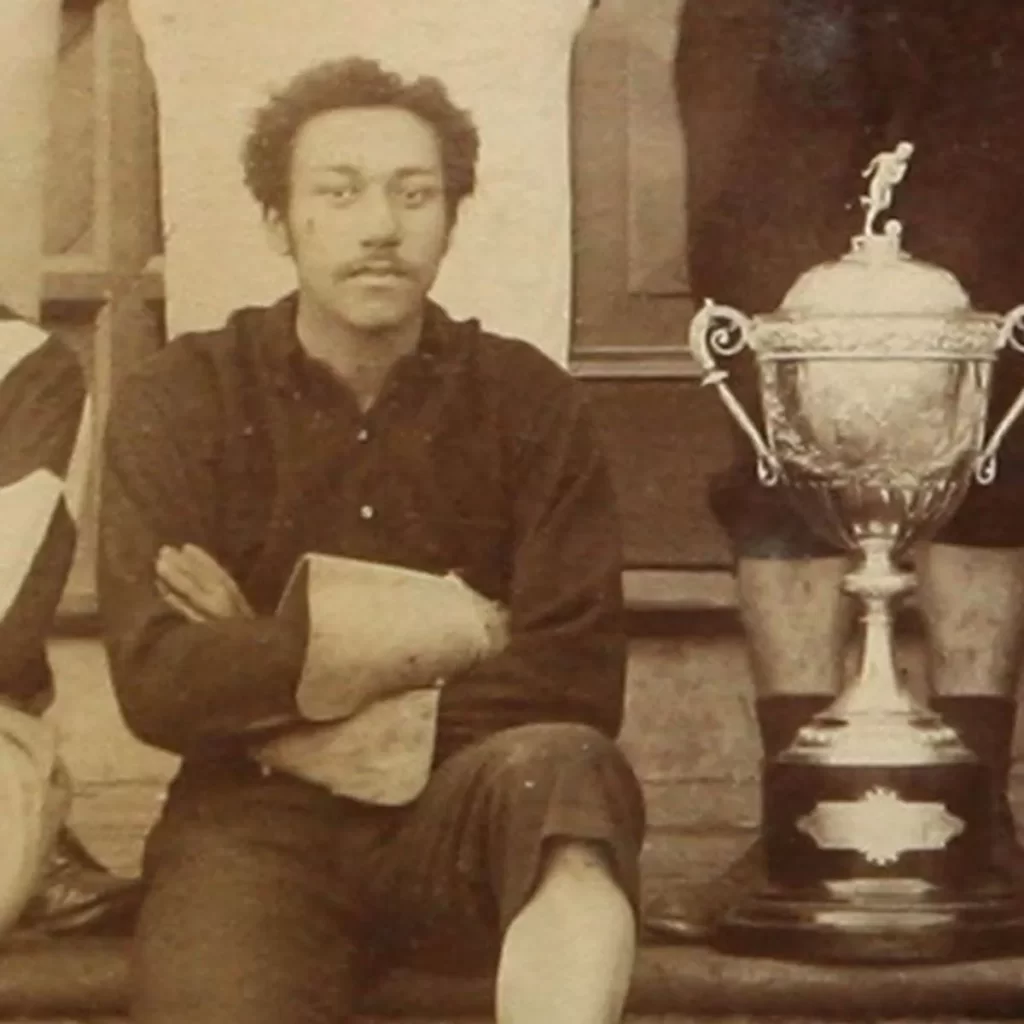
Arthur Wharton (1865-1930) stands as an enduring pioneer in the annals of sports history, notably recognised as the world’s first black professional footballer. Born in Jamestown, Ghana, then known as the Gold Coast, Wharton’s journey to fame began when he moved to England to study and pursue a career in athletics. His sporting prowess quickly became evident as he made a name for himself in the world of sprinting, cricket, cycling, and rugby.
However, it was on the football pitch that Arthur Wharton’s name would echo through time. He made his professional football debut as a goalkeeper for Darlington in 1885, and later, his impressive performances earned him a spot at the prestigious club, Preston North End. Wharton’s agility, lightning reflexes, and charisma on the field made him a standout figure in early English football. His significance as the first black professional footballer in the world transcended the game, as he broke racial barriers and challenged discrimination.
Beyond his sporting accomplishments, Arthur Wharton’s story is one of resilience and inspiration. He defied the norms of his era, proving that talent and dedication could shatter the confines of prejudice. Wharton’s legacy serves as a reminder of the indomitable human spirit and the enduring power of sports to unite people across cultures and generations. His pioneering role in football and his diverse sporting achievements continue to be celebrated today, making him an iconic figure in the history of sports.
Lawrie Cunningham

Lawrie Cunningham, born in Kingston, Jamaica in 1956, is a former professional footballer who made a significant impact on the pitch in the 1970s and 1980s. He was one of the first black players to break through racial barriers in English football and establish himself as a prominent figure. Cunningham began his football career with Leyton Orient, making his professional debut at just 16 years old.
Cunningham’s career took a major turn when he signed with West Bromwich Albion in 1977. During his time with the club, he became renowned for his speed, dribbling ability, and flair on the field. He was a pioneer for black players in England, often facing racial abuse from fans but also earning admiration for his resilience and football skills.
Cunningham’s talents led to him being transferred to La Liga giants Real Madrid in 1979, becoming the first British player to sign for the Spanish club. His time at Real Madrid was marked by memorable performances and key contributions, helping the team secure the La Liga title. Cunningham’s journey continued with spells at several other clubs, including Manchester United and Sporting Gijón.
While his football career had its highs and lows, Lawrie Cunningham remains a trailblazer in the sport, paving the way for future generations of black players in English football. His legacy extends beyond the pitch, representing both his remarkable talent and his resilience in the face of adversity. Cunningham’s impact on the game is celebrated as a part of football history.
Lawrie Cunningham tragically lost his life in a car accident. He died on July 15, 1989, at the age of 33. This untimely accident cut short the promising career of a footballer who had made a significant impact on the sport and had broken barriers as one of the first black players to play for Real Madrid. Cunningham’s death was a great loss to the footballing world, and his memory continues to be honoured as a trailblazing figure in the history of football.
Ronaldo

Ronaldo Luís Nazário de Lima was born on 18 September 1976 in Itaguaí , often known as “Ronaldo No. 9,” is a revered figure in the world of football. Born as Ronaldo Luís Nazário de Lima in Brazil, he is one of the most iconic and prolific strikers in the history of the sport.
What set him apart was his incredible goal-scoring prowess and an unparalleled ability to combine power and finesse in his play. Ronaldo’s career was defined by his fearless attacking style, which made him a fan favourite worldwide.
Over the course of his career, Ronaldo netted a staggering number of goals. While exact figures can vary depending on the source and the criteria used to count goals, he is widely recognised to have scored over 400 goals for club and country. At the club level, he played for illustrious teams such as Barcelona, Inter Milan, Real Madrid, and several others, amassing an impressive goal tally in various leagues and competitions.
Ronaldo also achieved remarkable success with the Brazilian national team, winning two FIFA World Cup titles in 1994 and 2002 and contributing significantly to those triumphs with his goal-scoring ability.
Ronaldo’s goal-scoring exploits earned him numerous individual accolades, including multiple FIFA World Player of the Year awards. And also numerous Ballon d’Ors
He remains an enduring symbol of the No. 9 position and a source of inspiration for aspiring strikers around the world. Ronaldo’s incredible career, marked by an extraordinary number of goals and unforgettable moments, solidifies his status as one of the all-time greats in the history of football.
George Weah

George Weah is a prominent figure in both the world of football and politics. Born on October 1, 1966, in Monrovia, Liberia, he is widely regarded as one of Africa’s greatest footballers. Weah’s journey from humble beginnings to global stardom is an inspiring tale of talent and determination.
Weah’s football career saw him play for top clubs, including Paris Saint-Germain, AC Milan, Chelsea, and Manchester City. He is best known for his time at AC Milan, where he achieved remarkable success, including winning the FIFA World Player of the Year award in 1995. His speed, technical ability, and goal-scoring prowess made him a sensation on the field, earning him the nickname “King George.”
George Weah, the legendary footballer, won numerous individual awards and achieved great success during his football career, including:
1. FIFA World Player of the Year: Weah won this prestigious award in 1995, becoming the first African player to do so. It was a recognition of his exceptional talent and contributions to the sport.
2. Ballon d’Or: He was awarded the Ballon d’Or in the same year, 1995, which is given to the best footballer in the world, making him the only African player to have received this honor.
During his club career, George Weah played for several top clubs, including Monaco, Paris Saint-Germain, AC Milan, Chelsea, and Manchester City, and achieved the following:
3. Ligue 1 (French League): Weah won the French Ligue 1 title with AS Monaco in the 1987-1988 season.
4. Serie A (Italian League): He won two Serie A titles with AC Milan in the 1993-1994 and 1995-1996 seasons.
5. FA Cup: Weah also won the FA Cup with Chelsea in the 1999-2000 season.
6. African Footballer of the Year: He was named African Footballer of the Year on multiple occasions, highlighting his dominance in African football.
These achievements underscore George Weah’s status as one of the greatest footballers in the history of the sport, with a remarkable list of honours and awards to his name.
Beyond his football career, George Weah entered politics and made history by becoming the President of Liberia in 2018, the first former footballer to achieve such a feat. His presidency marked.
Ian Wright

Ian Wright is undoubtedly one of the most iconic figures in Arsenal’s storied history. Born on November 3, 1963, in London, England, he etched his name into football lore with a remarkable career as a striker for Arsenal and the English national team.
Wright’s tenure at Arsenal, spanning from 1991 to 1998, was marked by incredible achievements. He became the club’s all-time leading scorer during his time there, with a phenomenal 185 goals in 288 appearances. His prolific goal-scoring prowess played a pivotal role in Arsenal’s success, including helping them clinch the Premier League and FA Cup titles. Perhaps the pinnacle of his club career came during the 1996-1997 season when he scored a memorable hat-trick against Bolton Wanderers on the final day, securing Arsenal’s place in the UEFA Cup.
In addition to his club achievements, Wright earned 33 caps for the English national team, scoring 9 goals. His international career included participation in the 1996 UEFA European Championship. Wright’s passion for the game, remarkable skill, and charismatic personality endeared him to Arsenal fans and football enthusiasts worldwide.
Off the pitch, Wright has continued to make an impact as a television and radio personality, sharing his insights and love for the game. His legacy as a player and a respected football pundit has solidified his place as an Arsenal legend and a beloved figure in English football history.
Ronaldinho

Ronaldinho, whose full name is Ronaldo de Assis Moreira, is a legendary Brazilian footballer who made an indelible mark on the world of soccer during his illustrious career. Born on March 21, 1980, in Porto Alegre, Brazil, he quickly rose to prominence as one of the most skillful and entertaining players in the history of the sport. Known for his dazzling dribbling, exceptional ball control, and infectious smile, Ronaldinho captured the hearts of football fans worldwide.
One of Ronaldinho’s most significant achievements was winning the FIFA World Player of the Year award twice, in 2004 and 2005. During this period, he played for Barcelona and was instrumental in leading the team to numerous titles, including two La Liga championships and the UEFA Champions League. His performances in a Barcelona jersey are still celebrated as some of the most mesmerising displays of skill and creativity in football history.
In addition to his club success, Ronaldinho was a vital part of the Brazilian national team. He played a crucial role in Brazil’s 2002 FIFA World Cup victory, showcasing his flair and scoring important goals throughout the tournament. His ability to light up the biggest stages with his tricks and magical moments cemented his status as one of the greatest footballers to ever grace the game.
Ronaldinho’s legacy goes beyond his achievements on the field; he left an indelible mark on the sport, influencing a generation of players with his style and personality. His joyful approach to the game and incredible skill set made him a beloved figure in the footballing world, and his name will forever be associated with the artistry of the beautiful game.
Marcus Garvey
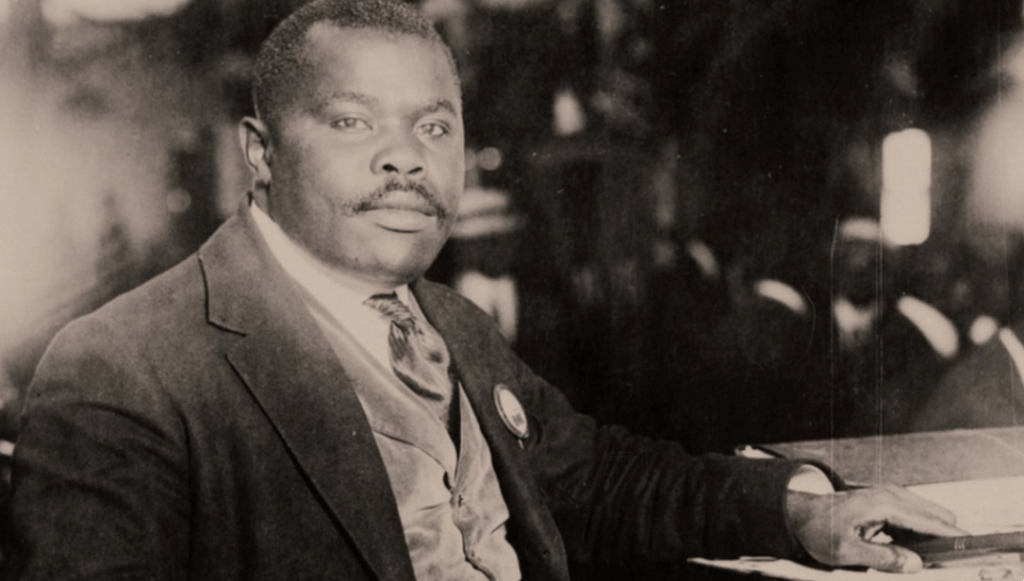
Marcus Mosiah Garvey, born on August 17, 1887, in St. Ann’s Bay, Jamaica, was a visionary leader, activist, and proponent of Black nationalism and Pan-Africanism. His life and work left an indelible mark on the global Black community.
Garvey’s early experiences in Jamaica exposed him to the realities of racial discrimination and colonial oppression. In 1914, he founded the Universal Negro Improvement Association (UNIA), which aimed to unite and uplift people of African descent worldwide. Garvey’s vision was to instill pride and self-sufficiency in Black people and to advocate for their rights and self-determination.
One of Marcus Garvey’s most significant achievements was the promotion of the “Back to Africa” movement, which encouraged African descendants in the Americas and other parts of the world to return to their ancestral homeland. He believed that a united African diaspora could achieve political and economic power on the African continent. Garvey’s message resonated with millions, and the UNIA grew into one of the largest Black organisations in history.
Despite facing persecution from government authorities, including a conviction and imprisonment for mail fraud, Garvey’s ideas and legacy continued to inspire generations of civil rights leaders, including Malcolm X and Martin Luther King Jr. His impact on the global struggle for racial equality, self-determination, and pride in African heritage endures to this day, cementing his place as a pivotal figure in Black history and the Pan-African movement.
Nelson Mandela

Nelson Mandela, born on July 18, 1918, in the small village of Mvezo in South Africa, was a towering figure in the global struggle for human rights, equality, and justice. He emerged as a symbol of resilience and the fight against apartheid, South Africa’s deeply entrenched system of racial segregation and oppression.
Mandela’s early years were marked by his involvement in the anti-apartheid movement, and he joined the African National Congress (ANC) to actively combat racial injustice. In 1964, he was sentenced to life in prison for his role in advocating for the rights of Black South Africans.
One of the most iconic moments in Nelson Mandela’s life came in 1990 when he was released from Victor Verster Prison after 27 years of imprisonment. His release marked the beginning of a new era in South Africa’s history. Mandela’s steadfast commitment to reconciliation and forgiveness was evident as he worked alongside his former oppressors to dismantle apartheid peacefully. In 1994, South Africa held its first democratic elections, and Nelson Mandela was elected as the country’s first Black president.
His presidency was marked by his efforts to heal the deep wounds of apartheid, promote racial reconciliation, and establish a more inclusive and equal South Africa. Mandela’s leadership and vision for a united, non-racial, and democratic nation made him an international symbol of hope and a beacon of moral courage. His legacy as a champion for peace and justice continues to inspire people around the world.
Malcolm X
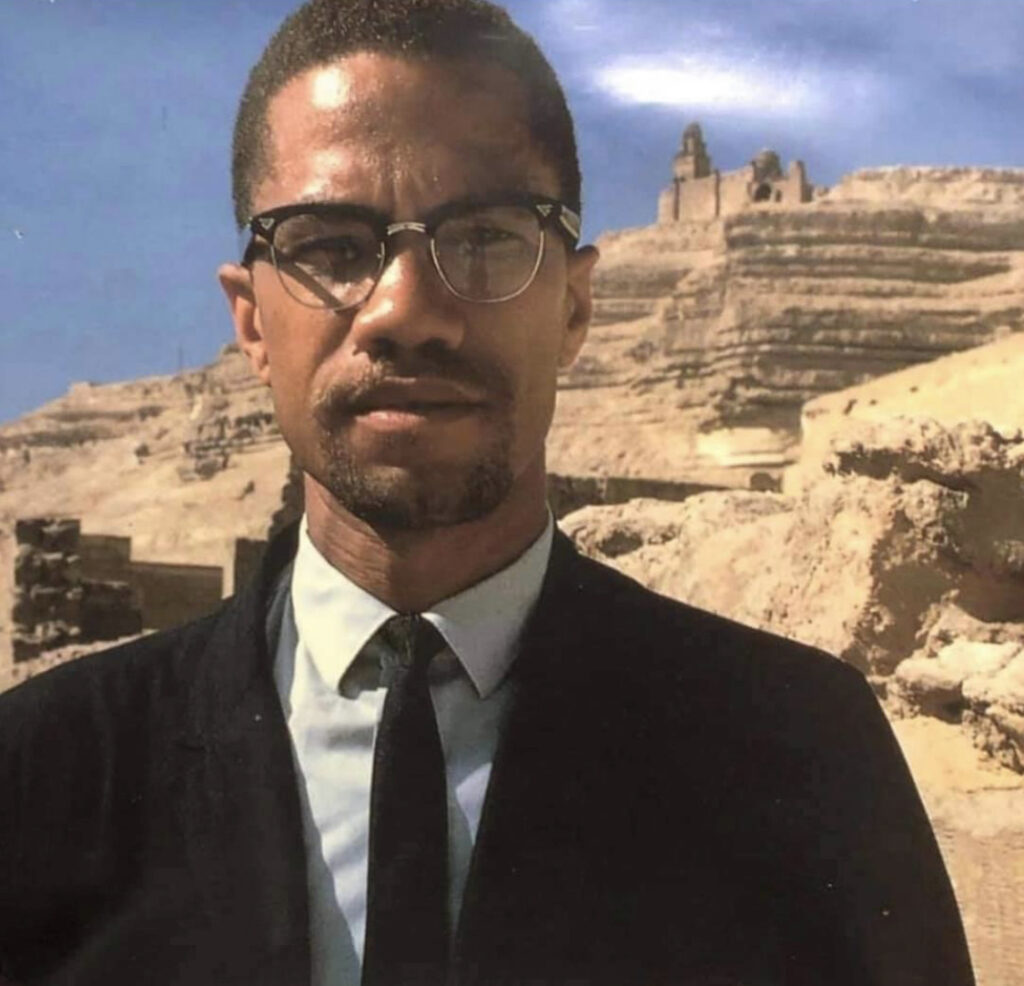
Malcolm X, born Malcolm Little on May 19, 1925, in Omaha, Nebraska, was a prominent figure in the civil rights movement in the United States during the mid-20th century. His early life was marked by adversity, including the traumatic murder of his father and his mother’s institutionalisation.
Malcolm’s involvement in criminal activities led to his imprisonment, where he encountered the teachings of the Nation of Islam, a Black separatist religious movement. Upon his release, he adopted the last name “X” to symbolise the unknown African ancestral surname stolen from his family during the era of slavery.
Malcolm X emerged as a charismatic and uncompromising advocate for Black empowerment and civil rights. He served as a minister and spokesperson for the Nation of Islam and rapidly gained a following for his impassioned speeches and calls for Black self-reliance and liberation. His views evolved over time, and he eventually distanced himself from the Nation of Islam’s leadership, moving towards a more inclusive and international perspective.
Malcolm X’s commitment to the struggle for racial equality took him beyond American borders, and he became an advocate for global human rights. His legacy is marked by his fearless pursuit of justice, his dedication to empowering marginalised communities, and his enduring influence on the fight for civil rights and social justice worldwide. Tragically, Malcolm X was assassinated on February 21, 1965, but his words and actions continue to inspire generations of activists and advocates for equality.
Rosa Parks
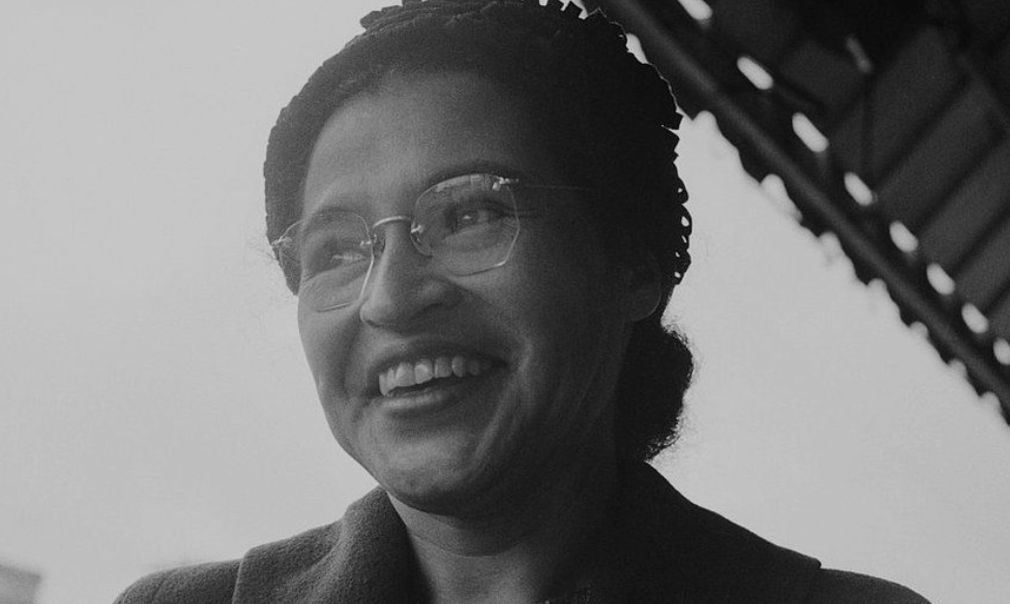
Rosa Parks, born on February 4, 1913, in Tuskegee, Alabama, became an iconic figure in the civil rights movement of the United States. Her life was defined by her unwavering commitment to justice and equality.
On December 1, 1955, Rosa Parks took a courageous stand by refusing to give up her seat to a white man on a segregated bus in Montgomery, Alabama. This act of civil disobedience, which was a deliberate challenge to the discriminatory Jim Crow laws of the time, sparked the Montgomery Bus Boycott, a pivotal event in the civil rights movement. Lasting over a year, the boycott led to the desegregation of Montgomery’s bus system and served as a catalyst for broader civil rights reforms.
Rosa Parks’ quiet determination and moral courage inspired a generation of activists. She continued her civil rights work, advocating for voting rights, education, and economic opportunities for Black Americans. Parks’ commitment to justice extended beyond her hometown, and she became a symbol of resistance against racial injustice across the nation.
Her legacy as the “mother of the civil rights movement” endures, and she is remembered not only for her historic bus stand but also for her lifelong dedication to the fight for equality and civil rights in America. Rosa Parks passed away on October 24, 2005, leaving an indelible mark on the struggle for racial justice and human rights.
Olaudah Equiano
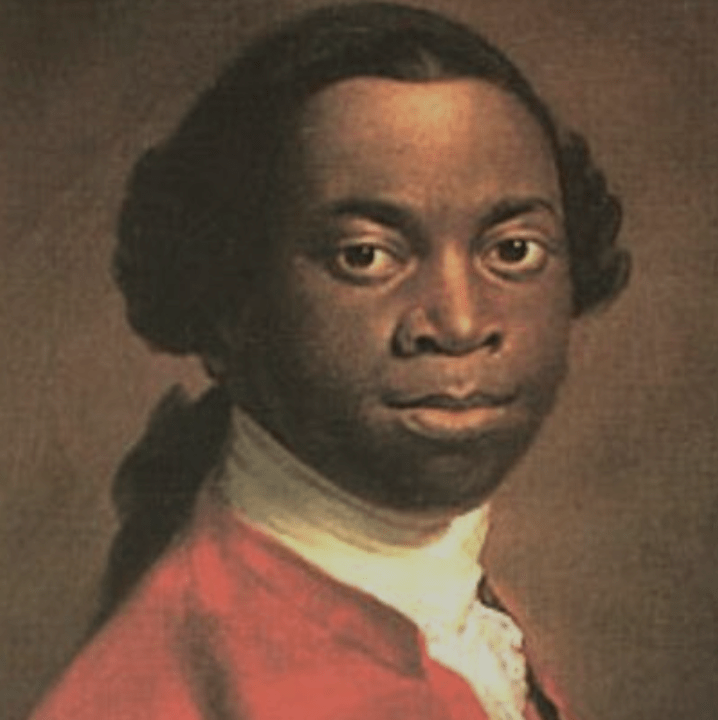
Olaudah Equiano, born in 1745 in what is now Nigeria, was an African writer and abolitionist who played a pivotal role in the movement to end the transatlantic slave trade and slavery itself. As a young child, Equiano was captured and enslaved, enduring the brutal Middle Passage journey to the Americas.
His experiences as a slave took him to various locations, including Virginia, the West Indies, and London. During his time in London, he had the opportunity to learn to read and write, and he eventually managed to buy his freedom.
Equiano’s life took a transformative turn when he became a free man. He adopted the name Gustavus Vassa and embarked on a journey of education, activism, and literary accomplishment. His autobiography, “The Interesting Narrative of the Life of Olaudah Equiano,” published in 1789, became a bestseller in its time and was instrumental in raising awareness about the horrors of the slave trade. Equiano’s narrative provided a firsthand account of the inhumane conditions of the Middle Passage, the suffering of enslaved Africans, and the need for abolition.
He travelled extensively, advocating for the rights and freedom of enslaved Africans, and his writings and activism contributed significantly to the British abolitionist movement. Olaudah Equiano’s life and work continue to be celebrated for their immense impact on the fight against slavery and for the advancement of human rights.
Ignatius Sancho
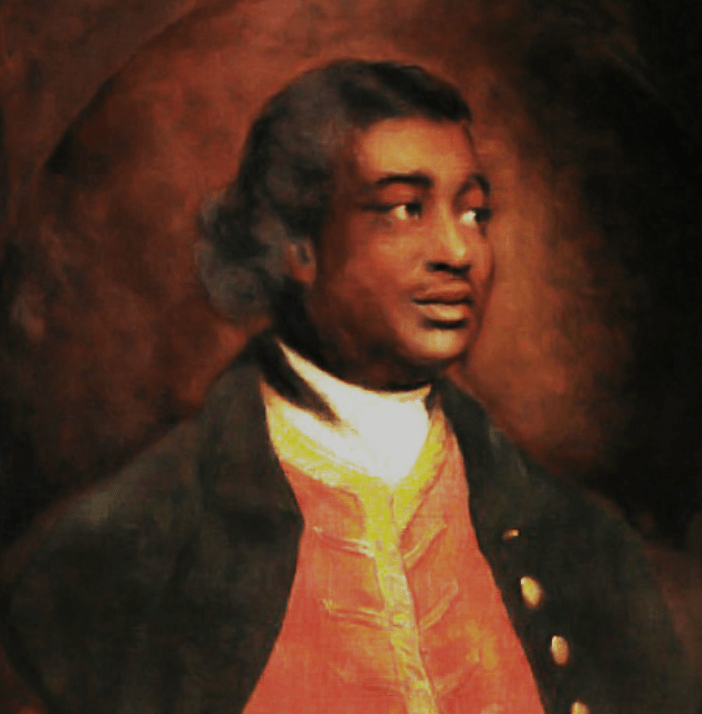
Ignatius Sancho, born around 1729 on a slave ship en route to the British colony of Cartagena in what is now Colombia, is a significant figure in Black British history. After his parents died, Sancho was brought to England as an enslaved child and eventually became the property of three sisters in Greenwich, London.
Despite his challenging beginnings, Sancho displayed remarkable intellect and was granted his freedom in his early 20s. He went on to become a man of diverse talents—working as a composer, musician, and author during the 18th century.
One of Sancho’s most notable achievements was his correspondence with prominent figures of the time, including the British Prime Minister at the time, the Duke of Montagu, and the abolitionist Laurence Sterne. Sancho’s letters, particularly his thoughts on slavery and his commitment to the abolitionist cause, garnered attention and support for the movement to end the transatlantic slave trade.
His autobiography, “The Letters of the Late Ignatius Sancho, an African,” published in 1782, was one of the earliest accounts of a Black person’s life in England and remains a valuable historical document. Ignatius Sancho’s life story is a testament to resilience and determination in the face of adversity and racism, and his contributions to literature and the abolitionist movement continue to be celebrated today.
The Tuskegee Airmen
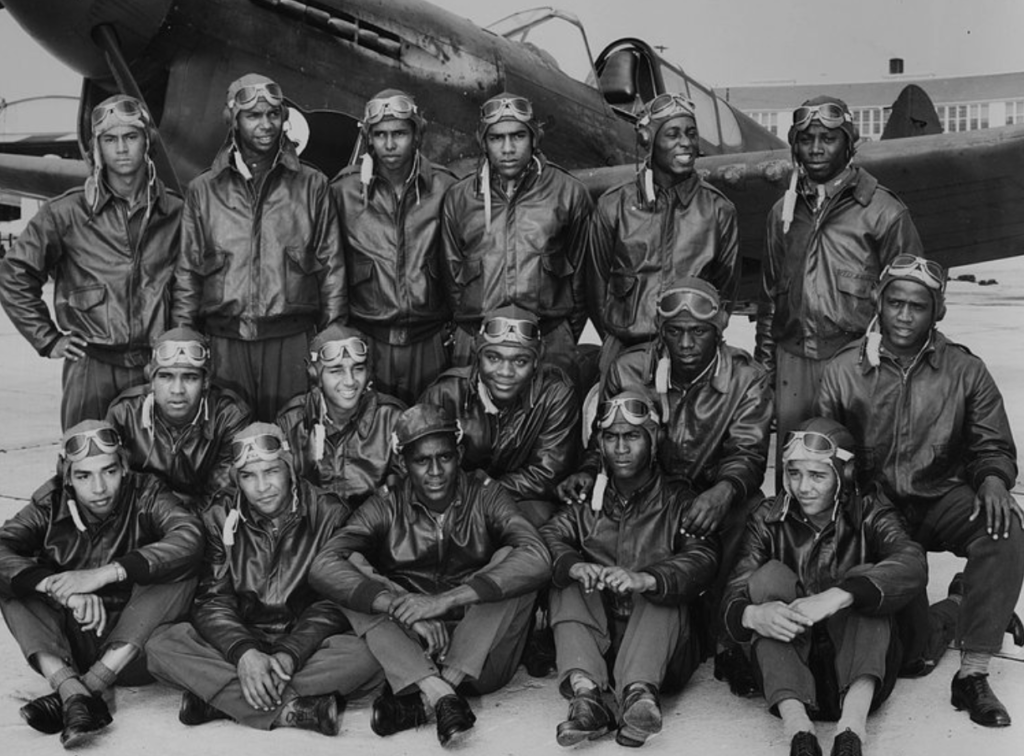
The Tuskegee Airmen were a trailblazing group of African-American military pilots who served during World War II. Their journey began in 1941 when the U.S. Army Air Corps established the Tuskegee Army Air Field in Tuskegee, Alabama, to train African-American pilots.
Despite widespread racial prejudice and scepticism about their abilities, these determined men overcame immense challenges and discrimination to earn their wings. Their exemplary performance in combat, particularly in escorting bomber missions over Europe, played a significant role in challenging racial segregation in the U.S. military.
The Tuskegee Airmen, known for their distinctive red-tailed P-51 Mustangs, achieved remarkable success during the war, flying over 1,500 missions and earning numerous awards for their courage and skill. Their contributions had a profound impact not only on the outcome of the war but also on the broader struggle for civil rights in the United States.
The Tuskegee Airmen’s legacy continues to inspire generations of Black Americans to pursue careers in aviation and the military, and they are celebrated as pioneers who shattered racial barriers and paved the way for greater equality in the armed forces. In 2007, they were collectively awarded the Congressional Gold Medal, the highest civilian honour bestowed by the U.S. Congress, in recognition of their extraordinary service and sacrifice.
George Washington Carver
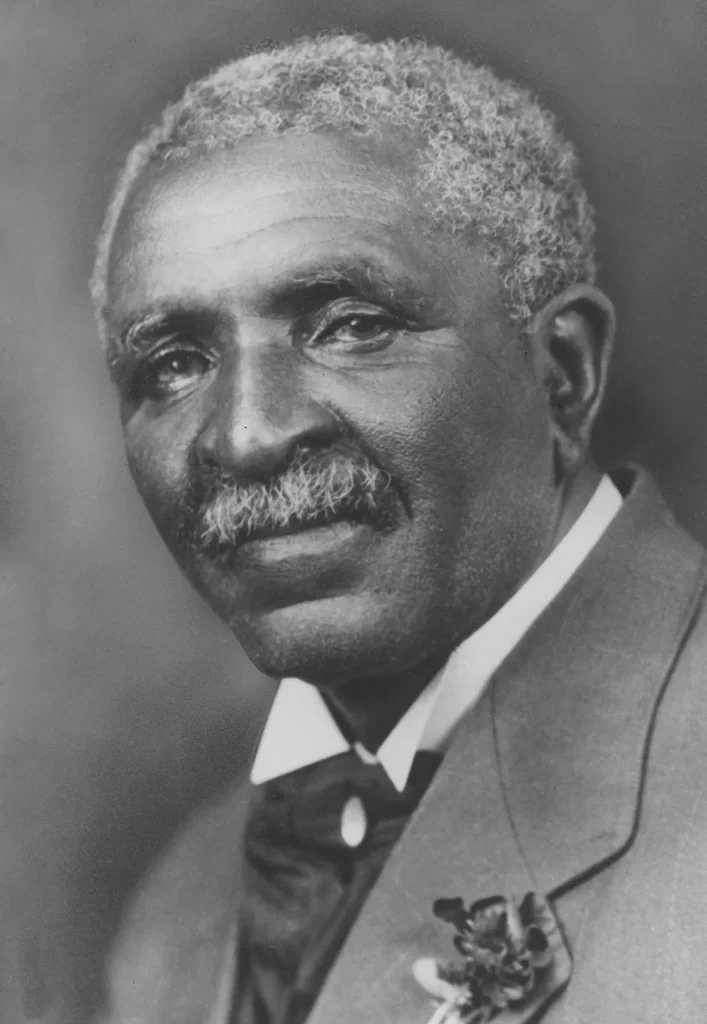
George Washington Carver (c. 1864-1943) was a renowned American agricultural scientist, inventor, and educator. He is best known for his pioneering work in the field of agriculture, particularly for his extensive research on peanuts, soybeans, and sweet potatoes. Carver’s innovative agricultural practices and inventions had a profound impact on Southern farming during a time of economic and environmental crisis.
Born into slavery in the early 1860s, Carver overcame significant obstacles to become one of the most influential scientists of his era. He earned a Bachelor’s degree in agriculture and a Master’s degree in botany from Iowa State Agricultural College (now Iowa State University) and later became the first African American faculty member at the college.
Carver’s work primarily focused on soil conservation and the development of alternative crops to cotton, which was depleting the soil. He discovered hundreds of uses for peanuts, including peanut butter, oil, and cosmetics, as well as various applications for soybeans and sweet potatoes. His research helped struggling Southern farmers diversify their crops and improve soil quality.
In addition to his scientific contributions, George Washington Carver was a passionate advocate for education, emphasizing the importance of agricultural education for rural communities. His dedication to improving the livelihoods of Southern farmers, along with his scientific achievements, earned him widespread recognition and respect. George Washington Carver’s legacy continues to be celebrated for his invaluable contributions to agriculture and his commitment to education and sustainability.
Dapper Dan

Dapper Dan, whose real name is Daniel Day, is a renowned American fashion designer and entrepreneur known for his influential work in the realm of streetwear and luxury fashion. Here is a brief biography of Dapper Dan:
Born on August 8, 1944, in Harlem, New York City, Dapper Dan grew up in a neighborhood known for its vibrant and diverse culture. He was self-taught in the art of fashion and design, starting his career by creating custom clothing for the local community in the 1980s.
Dapper Dan gained fame for his distinctive and bold creations that combined high-end fashion brands with urban street style. He often used counterfeit or unauthorised logos from luxury fashion houses like Gucci, Louis Vuitton, and Fendi to craft unique and eye-catching garments. His designs, featuring flashy prints and oversized silhouettes, quickly caught the attention of celebrities and hip-hop artists.
In the 1980s and 1990s, Dapper Dan’s boutique in Harlem became a cultural hub, attracting celebrities like LL Cool J, Mike Tyson, and Eric B. & Rakim. His fashion designs were closely tied to the emerging hip-hop scene, and he played a pivotal role in shaping the hip-hop fashion aesthetic.
However, Dapper Dan’s use of copyrighted logos led to legal challenges and the closure of his boutique in 1992. Despite this setback, his influence on the fashion world continued to grow. In 2017, Gucci collaborated with him on a collection, recognizing his impact on fashion and culture.
Dapper Dan’s life story is a testament to his resilience and innovation in the fashion industry. He has not only left an indelible mark on streetwear and luxury fashion but has also inspired a new generation of designers and artists to embrace creativity and authenticity in their work.
Share this content:
